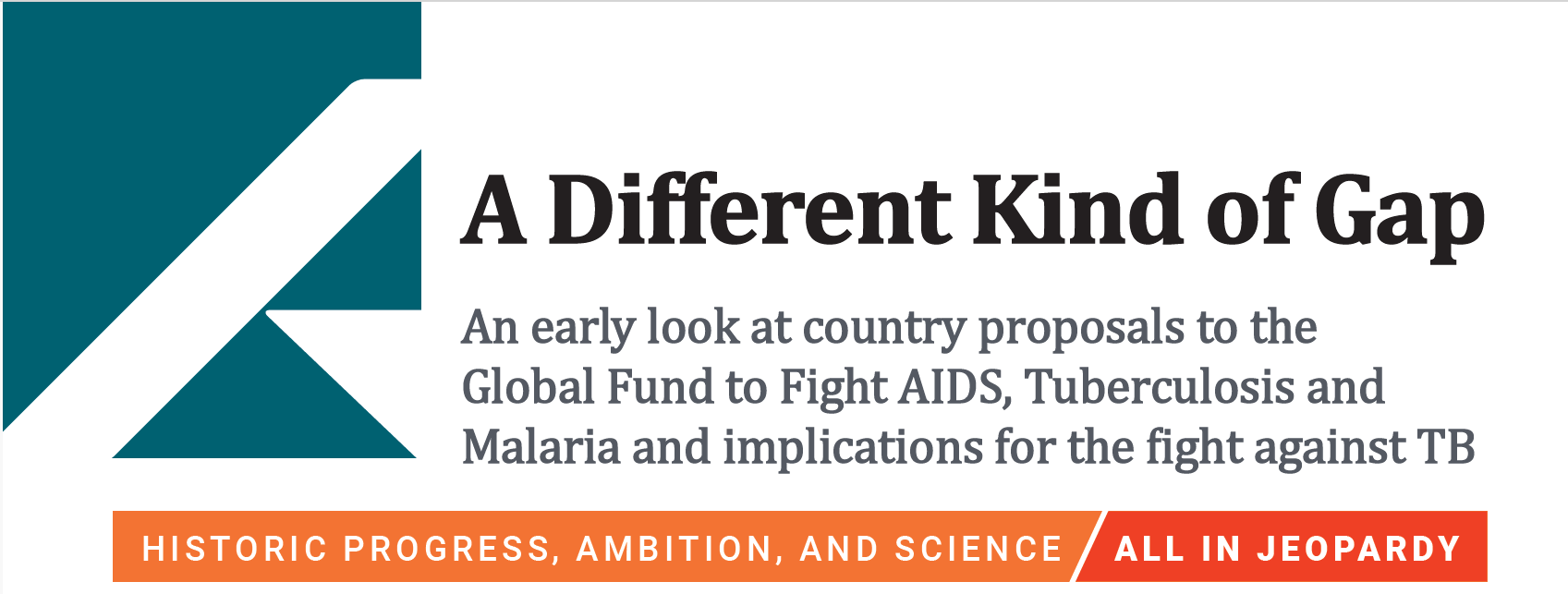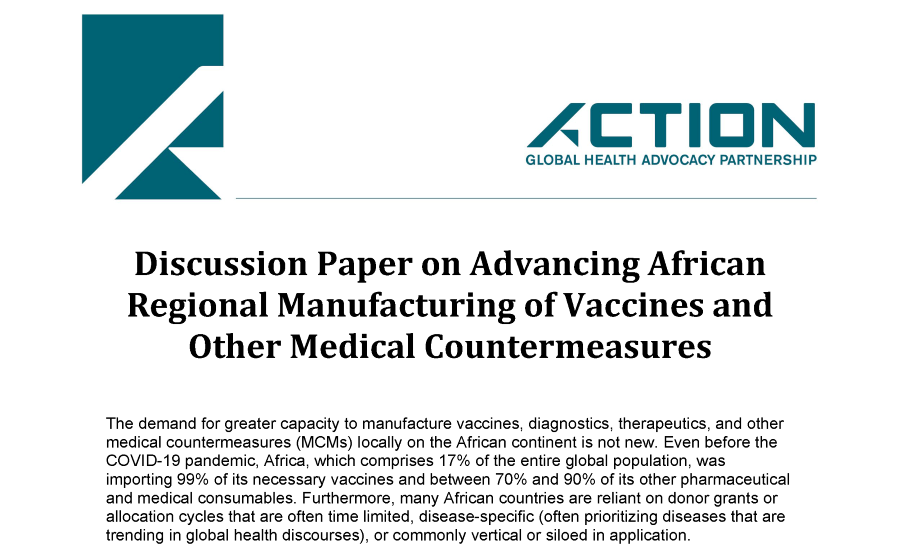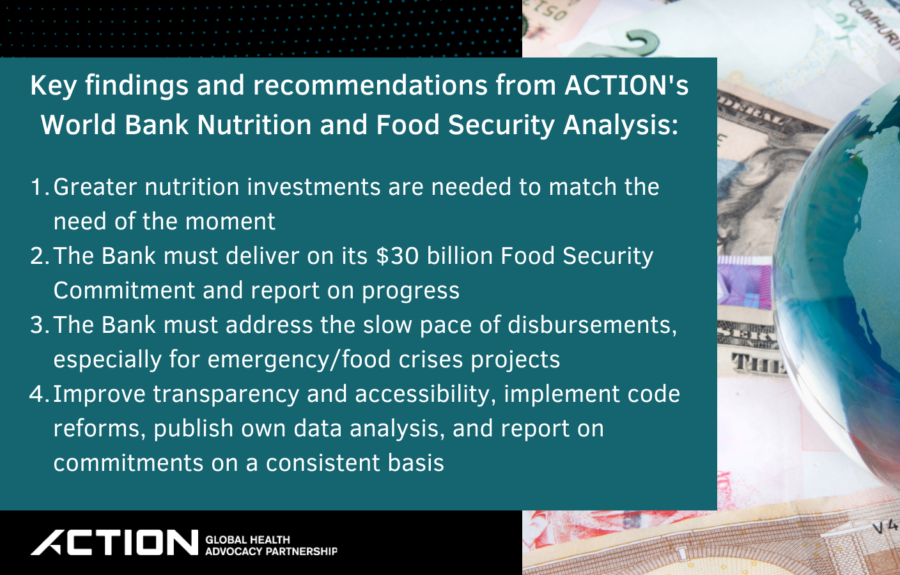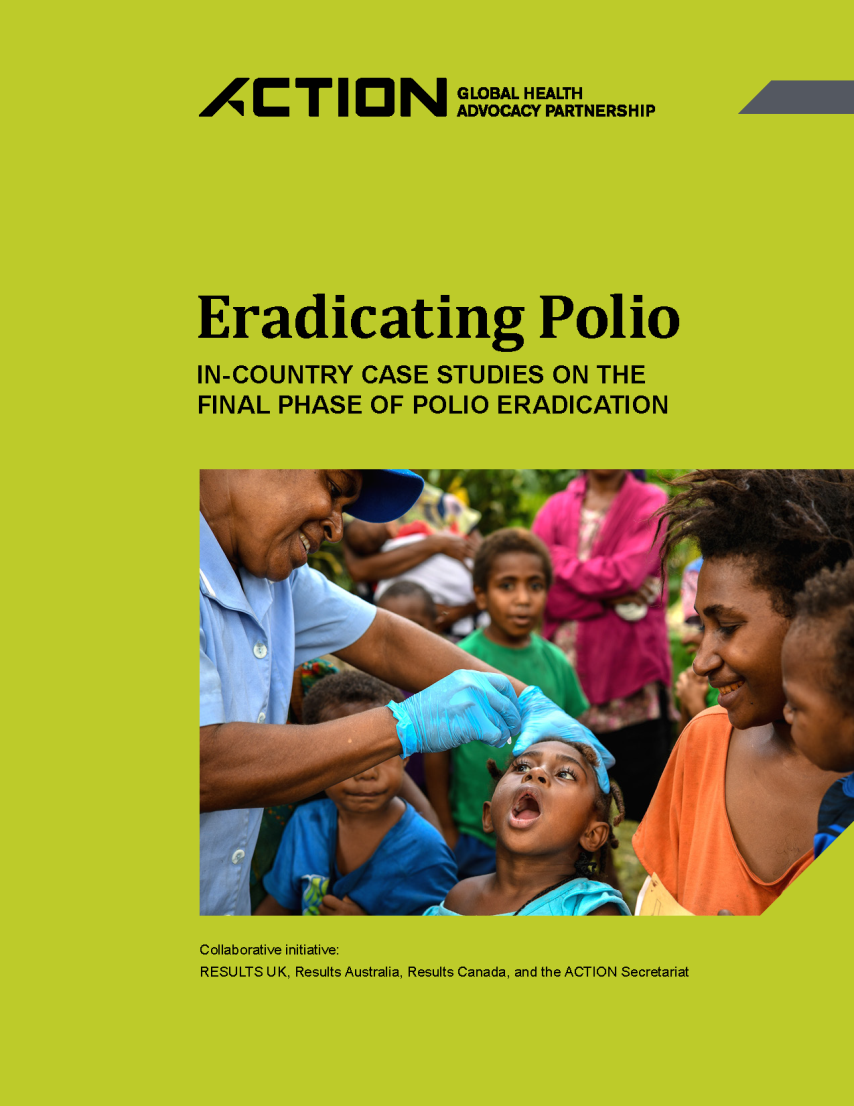Dr. Vineeta Gupta, the Director of the ACTION Global Health Advocacy Partnership Secretariat, has published a new argument in Health Affairs advocating for greater involvement of the World Bank in preventing child hunger and starvation.
The World Bank is a vital source of financial and technical assistance to low- and middle-income countries. It is the single largest development financing source globally, disbursing more than $54 billion to partner countries in 2020, including $21 billion through the International Development Association (IDA), which is the single largest source of donor funds for basic social services for the world’s 74 poorest countries. With this in mind, it is crucial that the World Bank engages more fully around nutrition and nutrition-smart investments. It’s good for humanity, it will save lives, and it will create economic benefits.
As we work to draw attention to this silent malnutrition epidemic that is co-occurring amidst the COVID-19 pandemic, we must keep in mind who it is that is most impacted when nutrition is underfunded: newborns, children, and mothers. Babies have no say in where or to whom they are born—the onus lies on all of us to ensure their right to a healthy start. This includes reproductive, maternal, newborn, child, and adolescent health (RMNCAH) investments because a mother needs to be healthy to have a healthy mom-and-baby duo. Investing in children necessitates investing in their mothers and caregivers, especially during the prenatal and neonatal periods.
Within these RMNCAH investments, nutrition should be included as a key pillar. The Global Financing Facility (GFF), a project of the Bank, is the main mechanism through which the Bank funds RMNCAH initiatives. A fair share of the GFF’s RMNCAH initiatives are “nutrition-sensitive,” meaning they might be indirectly related to nutrition. Nutrition-sensitive investments typically address the underlying causes of malnutrition—for example, interventions that support and promote breastfeeding. In contrast, nutrition-specific investments are high-impact interventions that address the immediate determinants of malnutrition—for example, micro-nutrient supplementation or fortification and acute malnutrition treatment. Thus, by advocating for the Bank to make more targeted investments in nutrition, we are calling for complementary initiatives that go beyond nutrition sensitivity and include more directly impactful nutrition-specific investments.






